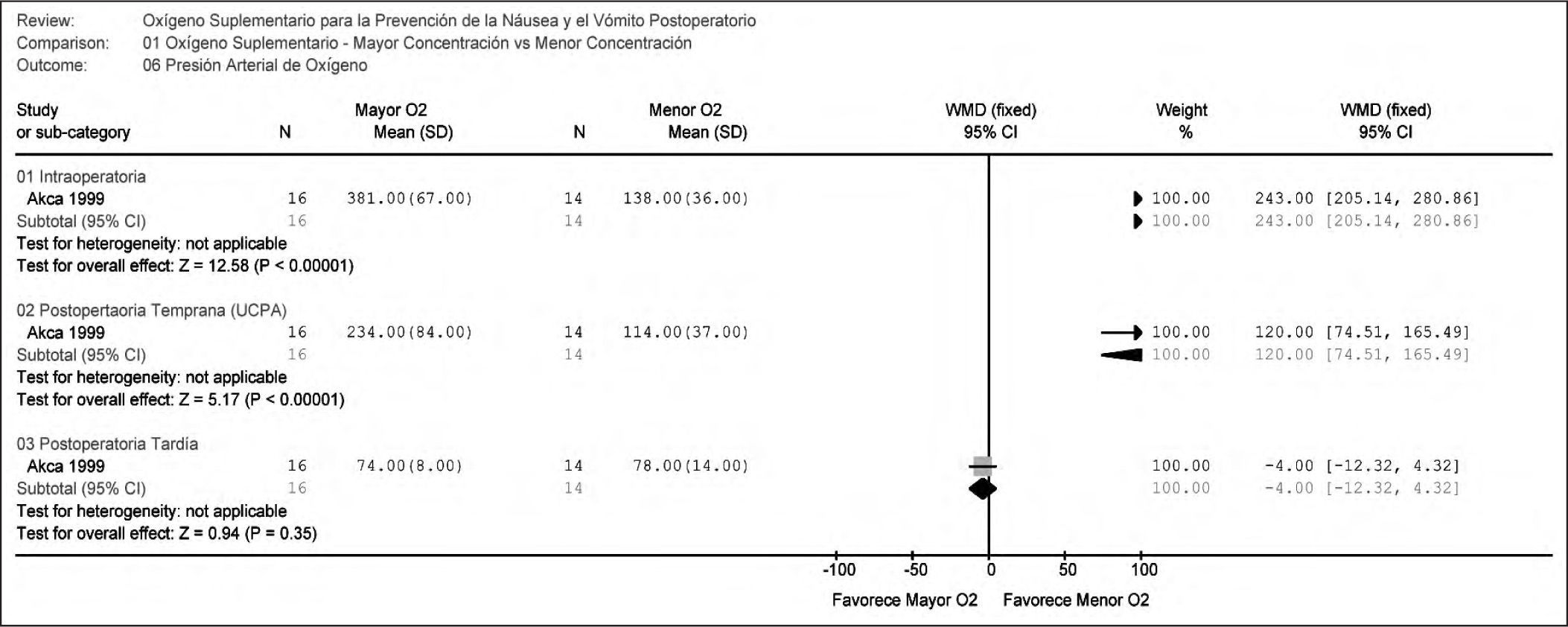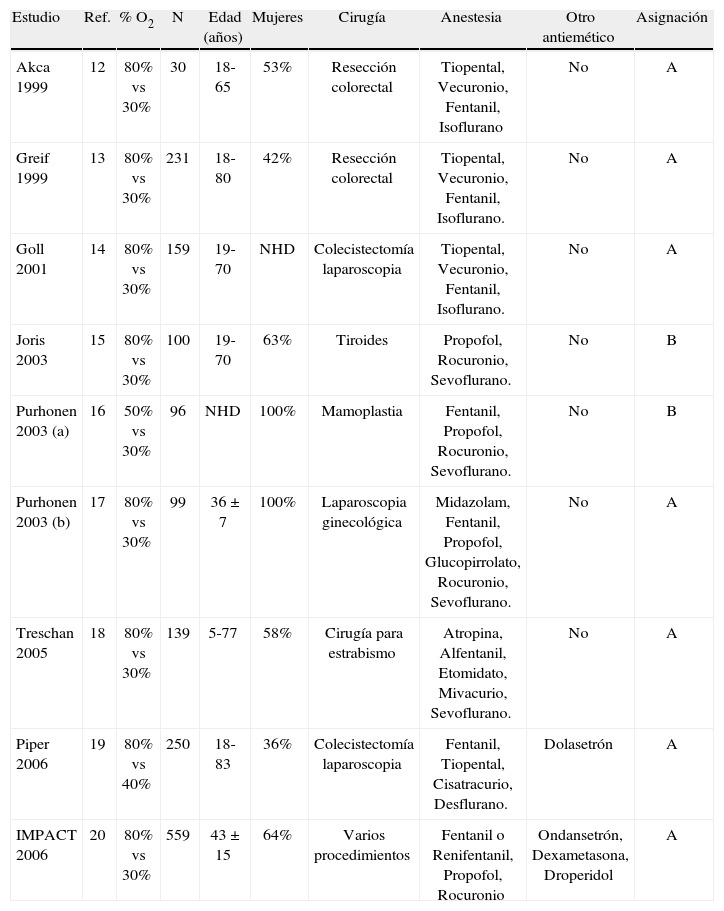A pesar del desarrollo de fármacos antieméticos la incidencia de náusea y vómito postoperatorios permanece entre 20 y 30%. Este meta-análisis examina la hipótesis de que la administración de oxígeno (O2) suplementario perioperatorio reduce la incidencia de náusea y vómito postoperatorios.
MétodosSe realizó una búsqueda sistemática de la literatura mediante MEDLINE, Embase, Cochrane Library, listas de referencias y búsqueda manual, sin restricción de lenguaje, hasta septiembre de 2007, para identificar experimentos clínicos aleatorizados que evaluaran el efecto del O2 suplementario sobre la náusea y el vómito postoperatorios. Los datos fueron extraídos y analizados con RevMan 4.2.9 (Cochrane Collaboration, Oxford, UK).
ResultadosSe incluyeron nueve experimentos clínicos aleatorizados que incluyen 1.661 pacientes (824 asignados al grupo de concentración más alta de O2, y 837 al grupo de concentración más baja de O2). El O2 suplementario perioperatorio no tiene efecto sobre la incidencia de náusea (RR 0,94; IC 95%, 0,82-1,08), náusea y/o vómito postoperatorios (RR 0,93; IC 95%, 0,74-1,17), ni sobre la necesidad de antiemético de rescate (RR 0,90; IC 95%, 0,70-1,15), pero sí reduce la incidencia de vómito (RR 0,77; IC 95%, 0,62-0,97). Tampoco se encontraron diferencias significativas en la incidencia de atelectasias (RR 1,23; IC 95%, 0,50-3,00) ni en la presión arterial de O2 postoperatoria (DPM -4,0; IC 95%, -12,3 a +4,3).
ConclusionesEl O2 suplementario reduce la incidencia de vómito postoperatorio. Su administración podría ser un método efectivo para reducir el vómito postoperatorio. Sin embargo no reemplaza las recomendaciones actuales de prevención farmacológica.
Despite the development of antiemetic drugs, the incidence of postoperative nausea and vomiting remains between 20% and 30%. This metaanalysis examines the hypothesis that perioperative administration of supplemental oxygen reduces the incidence of these complications.
MethodsWe performed a systematic search of the literature through MEDLINE, EMBASE, the Cochrane Library, reference lists, and a manual search, with no language restrictions, up to September 2007 to identify randomized clinical trials evaluating the effect of supplemental oxygen on postoperative nausea and vomiting. The data were extracted and analyzed using the RevMan program, version 4.2.9 (Cochrane Collaboration, Oxford, UK).
ResultsThe study included 9 randomized clinical trials with a total of 1661 enrolled patients (824 assigned to the group with a higher oxygen concentration and 837 assigned to the group with a lower oxygen concentration). Perioperative supplemental oxygen has no effect on the incidence of nausea (relative risk [RR], 0.94; 95% confidence interval [CI], 0.82 to 1.08), postoperative nausea and/or vomiting (RR, 0.93; 95% CI, 0.74 to1.17), or the need for rescue antiemetic drugs (RR, 0.90; 95% CI, 0.70 to 1.15). The incidence of vomiting, however, is reduced (RR, 0.77; 95% CI, 0.62 to 0.97). Significant differences were not found in the incidence of atelectasis (RR, 1.23; 95% CI, 0.50 to 3.00) or postoperative PaCO2 (weighted mean difference, –4.0; 95% CI, –12.3 to 4.3).
ConclusionsSupplemental oxygen reduces the incidence of postoperative vomiting. Administration of supplemental oxygen could be an effective method of reducing postoperative vomiting but does not replace current indications for pharmacologic prophylaxis.















